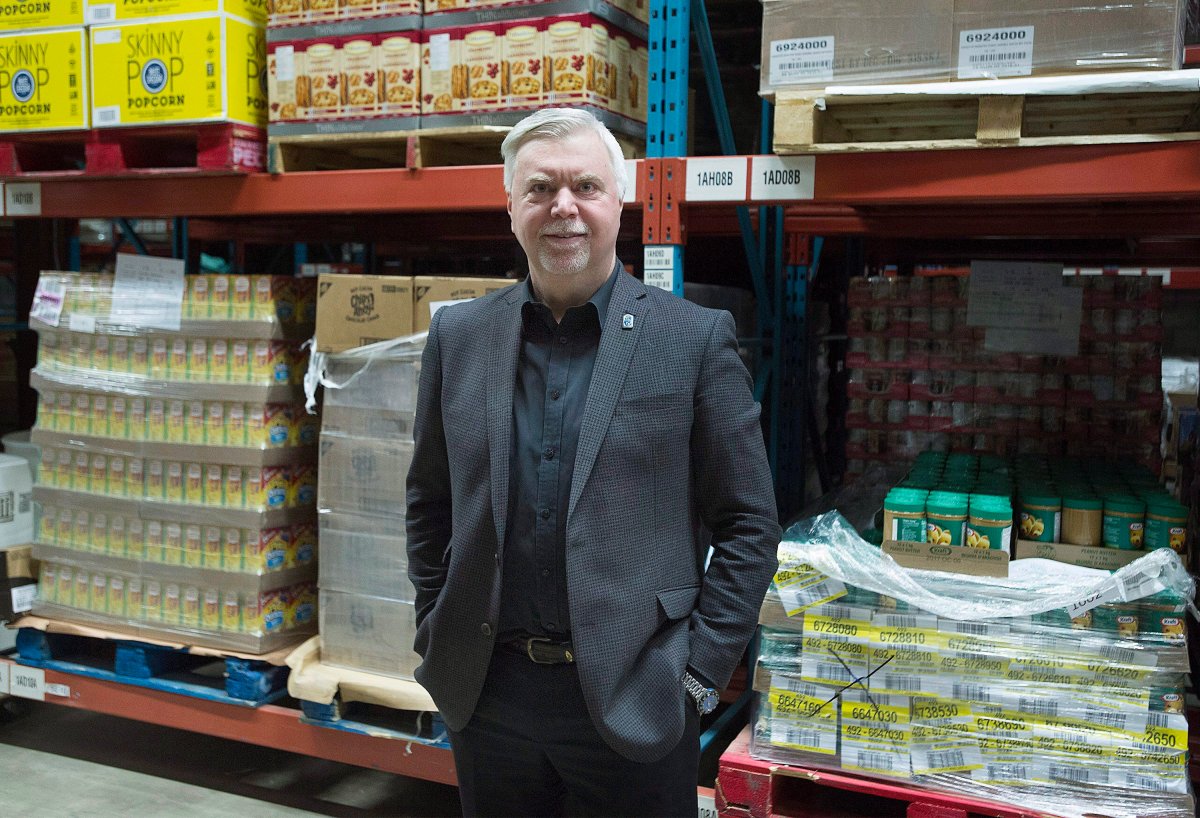Sam Watts is the CEO of Welcome Hall Mission, a long-standing organization that provides support to children, adults and families in need in Montreal.

After leaving the business world, Watts joined Welcome Hall Mission in 2016. He has played a key role in helping the city’s homeless people and building strong relationships with other non-profit organizations.
He spoke with Global News about how the past decade shaped up, the challenges in his line of work and his hopes for the future.
What were you doing in 2010?
I was working as a management consultant since leaving a senior management role in the business world in 2001. My main activity involved helping teams in organizations improve their performance. Our family had been active in supporting non-profits but it had never crossed my mind that I might end up serving in this sector. It was not part of my life plan to leave the business world and respond to a phone call, in 2016, to serve at Welcome Hall Mission.
How were you hoping things might shape up in your community over the past decade?
If we look back at documents from 2010, before my time at the Mission, there was a strong sense that there was an opportunity for change in the social sector. New approaches to address issues like homelessness were emerging in other parts of Canada, but Montreal was in a good position to take action because housing costs were still reasonable.
The hope was that we could establish a system that would lead to an end to homelessness within the decade. Montreal got off to a slow start compared to some other cities but we’ve been making good progress since 2014.
Were you right or wrong? If you were wrong, how so?
We were right and wrong.
Progress has been made but lack of funding and government misalignment in the early part of the decade slowed the initial progress. Since 2014, the major organizations in Montreal that are addressing the challenge of homelessness have helped more than 1,400 people who were chronically homeless settle into supported housing. Things began to shift with a number of changes in the policy framework in the last few years and we are in a better position to advance in the next decade.
What is the single biggest change that has happened in your line of work over the past 10 years that has been a game-changer?
The biggest change has been a shift towards aligned action among the major service providers in our sector. For more than 100 years, most individual community-based non-profit organizations had a “lone wolf” mentality coupled with a sincere aversion to partnership.

Get daily National news
Today, the key organizations with institutional capacity realize that the only way to solve complex social problems is via carefully co-ordinated action that is rooted in real-time data and implementing best practices.
What has been your biggest win?
Welcome Hall Mission was already the largest direct-to-public “food bank” in the city when we decided to shift to an innovative free grocery store model. This promotes choice, dignity and healthy eating for those experiencing food insecurity and hunger. Fully 75 per cent of the products we offer are perishable products that are recuperated from Montreal’s network of producers, distributors and grocery stores.
The best part is that our food management system supports two Marché Bon Accueil locations, and allows us to serve more than 3,500 people per week who come to us from every borough of the city.

What has been your biggest disappointment or miss? What did you learn from it?
The pace of progress has been far slower than it needed to be. Personally, I vastly underestimated the amount of resistance to change that exists in our community and the amount of energy that was required to ensure that everyone in our own organization understood what we were trying to accomplish. Funding is precarious in the non-profit world and many people view some kinds of change as a risk that threatens them and their clients.
However, when community-based non-profits keep doing what they’ve always done, they will make limited progress on dealing with the root of the problem.
I have learned that we need to work harder on encouraging alignment in the sector, and on elevating the public’s understanding of the issues so that we build a comprehensive social movement rather than ricochet from crisis to crisis.
What was the biggest story of the last decade in your line of work? Why?
The biggest story might be the results of the strong partnership that exists between Welcome Hall Mission, Old Brewery Mission, Maison du Père and Accueil Bonneau.
Together, we established a “virtual organization” called Projet Logement Montréal that has been recognized for its innovative practices in placing people who were chronically homeless into permanent housing, we opened up the Old Royal Victoria as a high-accessibility overflow shelter in the winter, and we are in the process of setting up a groundbreaking co-ordinated access program that will serve the housing needs of all Montrealers who are at risk of becoming homeless.
The other extremely important initiative has been the opening of mental health treatment centres in our emergency facilities in partnership with psychiatry departments from the healthcare system. Importantly, we launched the effort without having any government funding to support it but we are demonstrating its impact to the Ministry of Health.
How has the makeup of Montreal and the community you served changed over the last decade? How does this drive your decisions?
There have been a number of important changes. One has been the gentrification of the Sud-Ouest and surrounding areas. The result has been that area of need on the island of Montreal has shifted and includes boroughs like Montreal North. That is why we opened up a facility in that area. In 2020, we will operate our youth services efforts from Montreal North (and we opened up a marché there in 2019).
Another important shift has been the number of new arrivals in the city. We are still dealing with the “Roxham Road” reality. The good news is that most new arrivals are courageous, well-educated, motivated people who integrate quickly and typically need our help for a short period.
What’s your biggest hope for Montreal for 2020-2030?
We have the opportunity to eliminate chronic homelessness in this city by the end of the decade if we continue to fuel the momentum we have built. However, we also need to alter the funding model in order to generate better outcomes. I hope that changes in government policy will address systemic issues that lead to poverty. Governments have to stop funding Band-Aids and start funding outcome-oriented solutions.
Additionally, I hope that in the next 10 years we will work in a serious manner on reconciliation with the Indigenous communities to ensure that we begin to correct the massive injustices that have been perpetrated in the past hundred years.

What is the biggest challenge facing Montreal’s most vulnerable over the next decade?
In a word, isolation.
Social isolation is the enemy, community is the path forward. Anyone can easily fall into homelessness, addictions and the influence of predatory people when they do not have an active network of supportive family and friends. Despite our advances in being technologically connected, we risk failing to prevent vulnerable people from becoming disconnected unless we proactively address this issue.
And just for good measure… Do you think the Habs will win the Stanley Cup in the next decade?
YES!






Comments